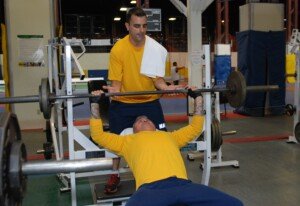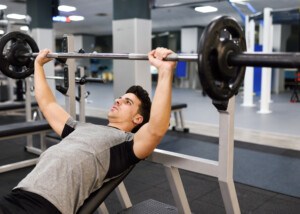
Top surgeons answer questions about just how much you can and cannot lift with a thoracic aortic aneurysm.
After all, information on sites like Mayoclinic.com is conflicting, generic and vague — open to much subjective interpretation.
For instance, just what exactly does “Don’t lift more than half your body weight” mean?
Does this apply to biceps curls? Seems that a 200 lb. person would strain a LOT more with trying to curl a 100 lb. barbell versus deadlifting it.
And if body weight is a criterion for how much a person with a thoracic aortic aneurysm can lift or should avoid lifting, then wouldn’t body composition play into this equation?
Does it make ANY sense at all that, according to the “Don’t lift more than half your body weight rule,” a 300 lb. person with 200 pounds of excess fat gets to bench press 150 lbs. — while a 200 lb. person who has way more muscle mass and upper body strength gets limited to lifting only a 100 lb. barbell just because they found out they have a thoracic aortic aneurysm?
What Are Your Questions About Strength Training with a Thoracic Aortic Aneurysm?

Freepik.com
Find out the answers to these riveting questions and many more in the articles linked below.
Some are interviews with aortic repair surgeons. Trust me — I left NO stone unturned!
- Putting into context the fact that research into weightlifting with an aortic aneurysm is very scarce.
- Safe weightlifting practices.
- Are deadlifts really dangerous? Yeah, if we’re talking about one RMs, but what about for fitness?
- Are pull-ups potentially risky?
- Guidelines for barbell squats
- Safety guidelines for biceps curls
CARDIO
 Lorra Garrick has been covering medical, fitness and cybersecurity topics for many years, having written thousands of articles for print magazines and websites, including as a ghostwriter. She’s also a former ACE-certified personal trainer.
Lorra Garrick has been covering medical, fitness and cybersecurity topics for many years, having written thousands of articles for print magazines and websites, including as a ghostwriter. She’s also a former ACE-certified personal trainer.









































